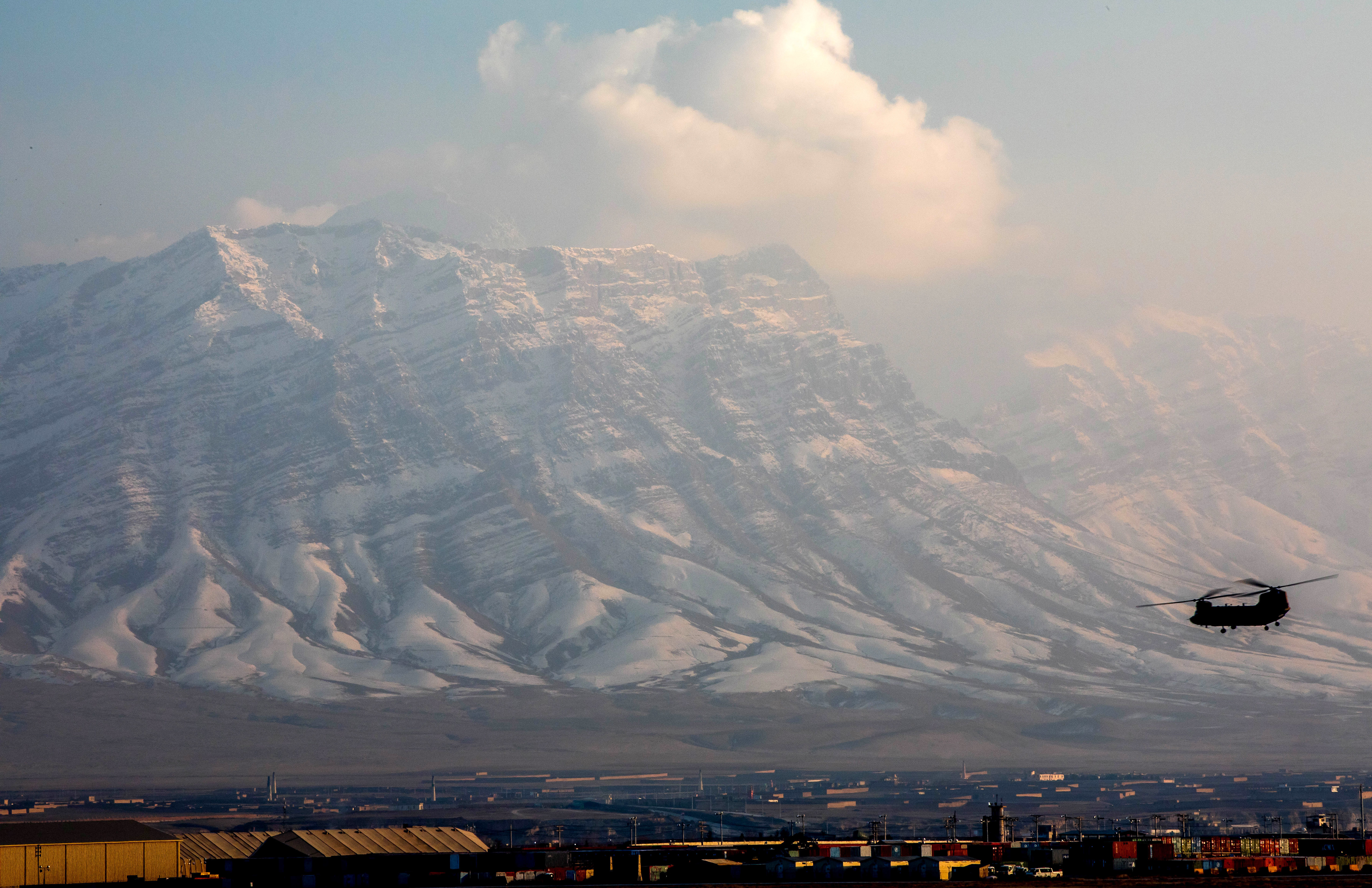
The “harsh reality” of the fall of Afghanistan to the Taliban raises question on how closely Washington can keep an eye on Islamic extremism, David Petraeus, a former top commander in the Middle East and a former CIA director, said on Monday.
“You seldom can go wrong by preparing for the worst,” the retired Army general said Monday. “It’s going to take a fleet of aerial tankers to get [aircraft] there and stay there” to monitor any build-up of a revitalized al Qaeda or the Islamic State. He added it would take hours for MQ-9 Reapers to reach Afghanistan from bases far removed from the land-locked country.
“Do the Taliban fighters keep their word?” that this time they will not provide a haven for al Qaeda as they did when they first took power in the mid-1990s, he asked. The same holds true for Pakistan, which provided sanctuary to the Taliban and its allies like the Haqqani Network.
Petraeus defended the performance of Afghan security forces from 2014, when the American and coalition combat mission drew down. “Afghans have been fighting and dying for their country” since then. He said their performance was “by no means perfect,” but “they would fight if someone had their back.”
The decision by the Biden and Trump administrations to remove all American forces without much consultation with allies or the Afghan government set in motion the events that are unfolding now in Kabul, he said.
He tied those decisions and timetables to the refusal of the security forces to fight on.
“We had this all set up” to continue counterterrorism efforts in Afghanistan and along with NATO allies advise and assist missions with security forces. Keeping 2,500 to 3,500 U.S. forces “would have been the way” to achieve that. Petraeus, who commanded the International Security Assistance Force in Afghanistan for a year starting in 2010, said if that number of American service members stayed, 8,500 allies in training missions would have also remained.
Also, 18,000 contractors, many working in air support roles, would have remained, he argued. Petraeus said the contractors were critically important to the supply chain needed by the Afghan security forces and their close air support missions.
Petraeus said the Afghan “government helped us” in carrying out regional counterterrorism missions and monitoring Islamic extremists. What has been lost to the United States in the Taliban takeover are front-line intelligence facilities and bases. “We do not have that now,” he said.
As the American and allied withdrawal continued and the Taliban advanced into provincial capitals, Petraeus said non-governmental organizations that were providing needed social services the government didn’t provide also closed operations
“Timing is everything,” he said.
Whether the Taliban will revert to 7th-century practices, as it did when it ruled until 2001, or modify its approach is unknown. What is known, according to Petraeus, is the financial crunch caused by shutting down credit markets and the Taliban’s seizure of assets belonging to the previous Afghan government, which will have a dramatic impact on the nation.
He said that “in a good year” the Taliban took in about $1 billion in opium sales, but the Afghan national budget was running at about $18 billion a year, most coming in foreign assistance for basic and security services, including the importation of fuel.
“The lights would go out in Kabul” unless the Taliban can figure out a way to govern that is acceptable to other nations that would allow the reopening of credit markets. Afghans “are going to be in a very tough situation,” he said.
Petraeus said he expected the Chinese, which shares a border with Afghanistan, to look for openings in commercial dealings with the Taliban government, “but they’ll be a bit wary” of an Islamic neighbor state.
As to who is evacuated, “where do you the draw line” after flying out Americans, holders of green cards and Special Immigration Visas is a decision that has to be made in Washington, and not at the airport gates by a junior officer or noncommissioned officer.
Petraeus did not rule out re-occupying the American embassy in Kabul to keep a U.S. presence in Afghanistan and at some future point negotiating with the Taliban on re-opening bases like Bagram or Kandahar for counterterrorism missions.
“How can we influence [the Taliban] in this new reality?” he asked.





